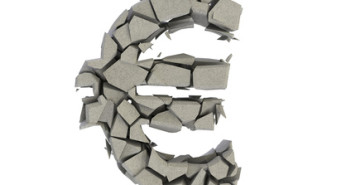ECB members can deny and warn against the consequences of a Greek default, but the wheels are already in motion. There are signs that the European Union is working quietly but rapidly on a restructuring plan for the debt hit country. Will this week be a turning point for the Euro?
Lars Feld, the senior adviser for German Chancellor Angela Merkel, said earlier in the week that Greek restructuring is unavoidable. This seems like a carefully prepared message by Merkel to the German public that this move is coming. He’s now joined by Clemens Fuest, of the German finance ministry.
And now, Mr. Feld does it again. Speaking with the Vima newspaper, Feld not only reiterated his opinion, but also released some news:
He said European Union leaders had started to prepare for such an eventuality. “They do not discuss a Greek debt restructuring openly because this would cause bigger uncertainty and speculation in the markets,†he was quoted as saying.
Maybe the work on restructuring wasn’t open until his statement, but now it sure is. The EU officials aren’t only working on it in their offices in central Europe, but are also going to Greece.

A delegation from the EU and the IMF, which provided the first bailout to an EU member about one year ago, is set to visit Greece on Thursday, just to see that everything is alright:
Senior officials from the European Union, the European Central Bank and the International Monetary Fund are expected to make a “lightning visit†for two days to ensure Greece can meet plans to cut its deficit by €24bn (£21bn).
The recent news that the Greek deficit in 2010 was higher than expected in 2010, shows that nothing is alright. The markets already know that for quite a long time. Greek yields on 10 year notes are at around 15%, while two year yields are around 25% – extremely high.
If this remains an isolated Greek problem, it could be solved by a Greek restructure (or leaving the Euro-zone). The great fear is of contagion. The Greek people see no light at the end of the tunnel, no hope, and this means less economic activity, higher poverty and an even longer road to get rid of the government’s debt.
In Ireland, it’s not even the government – it’s the banks. The Irish people have already seen how the people of Iceland refused to pay for their banks, over and over again. A Greek restructure / default, could lead the way for Ireland to just say no.
Euro
If the Greek restructuring gets more serious this week, it could be a turning point for Euro/Dollar. The Greek crisis has hurt the pair only temporarily in recent weeks, with the rate hike and the greenback’s weakness being much more dominant.
But if the talks are open and serious, this snowball could begin rolling. EUR/USD weakened in the last session of the week, after riding higher earlier. It will be interesting to see how it starts the new one that sees another rate decision from Jean-Claude Trichet.
For upcoming events and technical analysis, see the EUR/USD Forecast.



